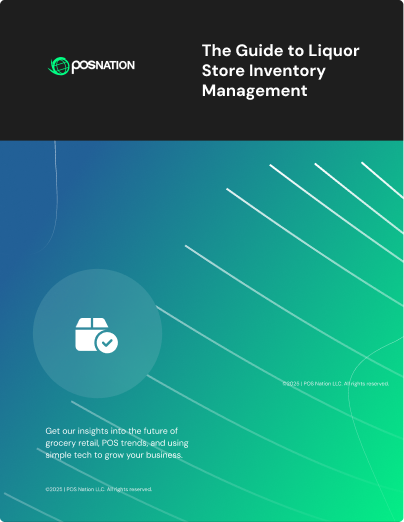Securing a tobacco license seems simple enough, but this step is often a hurdle between new smoke shop owners and their grand opening plans.
If you can’t organize your paperwork and submit your application on time, you may have to delay your business’ launch — potentially costing you thousands of dollars.
Want to take the stress out of this process? We’ve got you covered.
This blog includes everything you need to know about how to get a tobacco license, including three mistakes to avoid and seven key steps to follow.
3 Most Common Mistakes in the Tobacco Licensing Process
Opening a brand-new smoke shop comes with a lengthy to-do list. Between scouting locations, curating the perfect selection of cigars, and assembling a fantastic team, it’s easy to overlook the tobacco licensing process.
That’s why mistakes like these are so common:
- Starting too late: Applications can take weeks or even months to process, especially if there’s an issue with your initial paperwork. There’s often no guarantee that your application will be approved by a certain date.
- Underestimating application requirements: Getting a tobacco license isn’t always quick and simple, especially if you have to get state and local permits, undergo a background check, or submit in-depth financial information and other documents.
- Failing to stay compliant with laws and regulations: When you receive your tobacco license, you commit to following ongoing laws and regulations. Failing to stay up to date and comply with these rules can lead to penalties or the loss of your license.
Since you can’t open your doors without a tobacco license, making one of these mistakes can be disastrous.
To avoid them, you need a rock-solid plan to secure and protect your license. Let’s look at seven critical steps to follow.
1. Determine What Type of License You Need
What license(s) do you need? Your first step is to answer this question with confidence. Let’s look at some common license types at the state, federal, and local levels.
Federal
In general, the Alcohol and Tobacco Tax and Trade Bureau (TTB) doesn’t require tobacco retailers to obtain special licensure. However, you need a federal license if you plan to manufacture, import, or export tobacco products.
For example, if you’re planning to import cigars directly from Nicaragua or the Dominican Republic, you’ll need a TTB importer license to ensure you’re compliant with tariffs and regulations.
State
First, check with your state’s department of revenue (DOR) to see what licensure is required for tobacco retailers. You may have to get:
- A general retail license to operate in your state or county
- A cigarette-specific license that permits you to sell traditional tobacco products
- A vape retail license that allows you to sell e-cigarettes and other vape products
- An e-commerce license that lets you sell tobacco and vape products online
The CDC’s STATE System Licensure Fact Sheet provides a solid starting point for learning about your state’s requirements.
Local
Your county or city government may also require you to get additional licenses and permits before opening your tobacco shop. These requirements vary significantly from place to place, so check with your local government office before setting a grand opening date.
2. Ensure You’re Eligible To Obtain a Tobacco License
You know what kind of tobacco license you need — now let’s make sure you’re eligible to get it.
Here’s what most states require you to prove before accepting your tobacco license application:
- Business legitimacy: Most licensing agencies require you to submit your federal employer identification number (EIN) and other documentation proving your business’ legal standing.
- Personal information: Most states require licensees to be of legal smoking age and have a clean criminal record, especially when it comes to alcohol, tobacco, and tax-related crimes.
- Compliance with zoning laws: Many state and local governments restrict where smoke shops can operate, requiring a minimum distance from schools and places of worship.
These are just a few examples of tobacco license requirements, so do your research and prepare before submitting your application.
3. Understand the Laws and Regulations
Applying for a tobacco license means that you’re committed to following state and local regulations regarding the sale of tobacco and vape products.
Before finalizing your business plan and submitting your application, make sure you’re prepared to follow these laws and protect your license eligibility.
Here are a few examples of federal, state, and local tobacco laws:
- Age restrictions: Selling tobacco to individuals under 21 is illegal at the federal level. Failing to prevent underage tobacco sales could lead to the suspension or revocation of your license.
- Signage requirements: A federal ruling requires that warning signs be displayed near cigarette displays in gas stations, grocery stores, and smoke shops.
- Tax laws: Almost all states require you to affix a stamp on cigarette packages to indicate that you’ve paid excise taxes. Complying with these tax laws and maintaining accurate financial records is crucial for protecting your tobacco license.
- Product limitations: Depending on your tobacco license type, some states restrict the kinds of products you’re allowed to sell. For example, it might be illegal to sell certain cigarillo flavors that may appeal to minors.
- Marketing and advertising restrictions: You have to comply with tobacco marketing regulations at the state and federal levels. Most importantly, your marketing campaigns cannot target or appeal to individuals under the legal smoking age.
Let’s look at how these regulations look in a specific state, using California as an example. You have to:
- Allow authorities to see proof of your license.
- Keep eligible purchase invoices for four years.
- Keep purchase invoices at each licensed location for at least one year.
- Allow relevant authorities access to your invoices upon request.
- Purchase and sell only cigarettes and roll-your-own (RYO) tobacco authorized for sale in California.
- Purchase cigarettes and tobacco products only from California-licensed distributors or wholesalers.
Misunderstanding or failing to comply with these laws and regulations can be disastrous, especially for a new tobacco shop. We recommend consulting with a lawyer who specializes in tobacco retail law to create your compliance plan.
Pro tip: The right point of sale (POS) system makes it easier to prevent underage sales and stay compliant with financial and tax regulations. Look for one that includes built-in, scanner-powered age verification, as well as in-depth financial reporting specifically designed for the tobacco industry.
4. Budget for Licensing Costs
Now, let’s answer the question at the top of any new business owner’s mind: How much will this cost?
Tobacco licensing fees vary from state to state, but let’s look at some general estimates:
- License fee: Annual tobacco license fees can cost between $5 and $150, with most states falling in the $25 to $50 range.
- Application processing fee: Some states charge an additional, one-time fee when you first submit your application, usually in the $100 to $250 range.
- Background check fee: Certain states may require you to pay for your own background check. This is usually a $10 to $30 fee.
- Legal and consulting costs: If your state has a lengthy application process and complex tobacco regulations, you may want to hire legal counsel to help you make a plan. Budget between $150 and $300 per hour for this service.
Don’t forget to factor in ongoing costs like a POS system with legal compliance features and tobacco retailer insurance.
Related Read: How Much Is a Tobacco License? [Costs & Criteria]
5. Gather Your Paperwork
Applying for a tobacco license can be a stressful process, especially if you’re scrambling to gather the essential paperwork.
Want to make sure you’re prepared? Here are some of the most commonly required documents:
- Business registration documents and federal EIN
- State tax registration certificates
- General retail permit from your state/municipality
- Proof of occupancy and floor plan
- Government-issued identification
- Personal and business financial statements
- Background check results or consent affidavit
Having everything ready before you start the application process will prevent headaches and slowdowns.
6. Submit Your Application
It’s finally time to submit your tobacco license application!
Most states have an online application option. This is a preferred method for government officials and business owners because it’s quicker and easier to track.
However, if you can’t apply online, most states allow you to print your application and deliver it by hand or by mail.
Remember: Waiting for your application to be processed is one of the most time-consuming steps in getting a tobacco license, so apply as soon as possible.
7. Make a Tobacco License Renewal Plan
Congratulations! Your tobacco license has been approved, and you’re ready to start making sales.
But the work doesn’t stop here — you need a plan to renew your license and keep it in good standing.
Immediately after receiving your license, note the renewal date and any associated deadlines. Mark these dates prominently in your business calendar and set up reminder systems well in advance of renewal deadlines.
Most states require you to renew your license every year or every other year. Some allow renewal applications to be submitted months in advance, while others have strict windows for renewal submissions.
Understanding these timelines ensures you never operate without a valid license.
You Know How To Get a Tobacco License: What’s Next?
Ready to turn your dream of owning a smoke shop into a reality? You know how to get a tobacco license — now it’s time to take the next step.
The right POS system can help you launch, manage, and grow a thriving business.
Cigars POS is our top pick for smoke shops, tobacco stores, and cigar lounges. This powerful, all-in-one software includes:
- Compliance tools for age verification and financial reporting
- Real-time inventory management with carton-pack tracking
- A built-in loyalty program
- Tobacco scan data reporting
- Integrated high-risk processing
See these features (and more) in action by scheduling your live, personalized demo with one of our tobacco industry experts today.








 by Cort Ouzts
by Cort Ouzts
.webp?width=520&height=294&name=1908_BenefitsTobacco_Feature%20(1).webp)
 by Gina Obert
by Gina Obert

 by Spence Hoffman
by Spence Hoffman
![[ANSWERED]: How Profitable Is a Smoke Shop?](https://www.posnation.com/hs-fs/hubfs/Blog%20Featured%20Images/how-profitable-is-a-smoke-shop.webp?width=520&height=294&name=how-profitable-is-a-smoke-shop.webp)